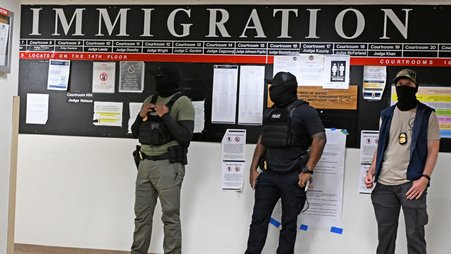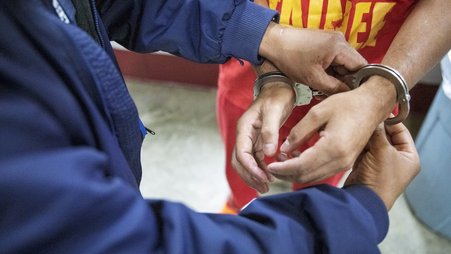
Justice may be blind, but when it comes to our legal system, the public isn’t meant to be. Yet access by journalists and others to the most important antitrust trial in recent years has been severely limited.
Before a single witness could utter a word of testimony in the Google antitrust case on Tuesday, the public and the press were temporarily barred from the courtroom. It’s just another step in a long list of anti-transparency measures styming access to the case: documents and testimony have been repeatedly sealed; exhibits used in open court have been removed from the internet; and only those who can actually make it to the courtroom are permitted to listen to the testimony (when they’re allowed in at all, that is).
Despite these restrictions, reporters and courtwatchers have been doing their best to inform their audiences about the trial. But if the federal judge presiding over the case, Amit Mehta, doesn’t act soon to stop this tsunami of secrecy, people may be left mostly in the dark about the biggest antitrust lawsuit of the 21st century.
Behind this anti-transparency push are Google and other big tech companies arguing that letting people observe the case fully could reveal trade secrets or otherwise embarrass them by generating “clickbait.” There is some precedent for closing parts of trials or redacting court documents to avoid disclosing trade secrets. But not to save corporations from embarrassment. Virtually every trial has the potential to embarrass someone.
Nevertheless, Mehta has repeatedly yielded to the companies’ demands to shield the trial from the public and the press. Here are three ways Mehta has chosen secrecy over access.
Capitulating to corporate secrecy claims
During pretrial discussions about what documents and proceedings should be kept secret, Mehta suggested he would defer to the tech companies’ claims that public access would cause them competitive harm. No one, he explained, understands the industry and the markets like the companies. Maybe so, but companies don’t understand the First Amendment the way federal judges do — or, at least, should.
But a judge’s job isn’t to simply accept a party’s claim that public access to a trial would cause the sky to fall. Imagine, for example, that courts had acceded to tobacco companies’ demands to keep court records proving the dangers of smoking under seal. Instead, judges should skeptically examine parties’ justifications for secrecy (which are often completely illegitimate) and only permit sealing if the presumptive right of access to court proceedings is overcome by a compelling reason. By deferring to the companies’ claims of financial harms, Mehta has abdicated his role as the protector of the public’s interest in open court proceedings.
Criticizing making public documents…public
Mehta has also scolded the government for putting trial exhibits online, saying he should have been told about the posting first. But exhibits entered into evidence are public records. There’s no reason a judge should be informed before they’re posted publicly, since there’s nothing he could do to order them to be removed — at least not legally. Rather than reproach the government, Mehta should applaud it for taking actual steps to improve people’s access to court proceedings for a change.
After Mehta’s reprimand, the government unfortunately caved and removed the exhibits from its website. It’s now asked the court for permission to publicly post new trial exhibits at the end of each day, but Google wants a 24-hour delay before posting. There’s no reason for any delay in posting these trial exhibits, and courts have said that people have a contemporaneous right of access to court records. But by demanding that the government ask for permission to give the public documents that are by law public records, Mehta has opened the door for delay.
Barring broadcast of trial testimony
Finally, Mehta denied a request to broadcast audio of the trial, meaning that only those who are within commuting distance of the courthouse can follow it live. Reporters and others who can’t attend the trial in person must rely on expensive transcripts or news reports. That’s better than nothing, but it’s no substitute for live audio, which can reveal nuances in witnesses’ tone or demeanor that can’t be captured in writing.
Mehta’s hands were tied by a new Judicial Conference policy that prohibits the audio broadcasting of civil trials with witness testimony, despite the success of those permitted on an emergency basis during the COVID-19 pandemic. It’s an unfortunate example of how the new policy is already rolling back access to civil trials that were afforded during the pandemic.
By repeatedly ruling in favor of secrecy, Mehta is rapidly undermining the public’s trust in the judicial system and the eventual outcome in this case. As the Supreme Court recognized more than 40 years ago, “People in an open society do not demand infallibility from their institutions, but it is difficult for them to accept what they are prohibited from observing.” Unless Mehta allows for more openness soon, we all will find it hard to trust the antitrust trial of the century.




